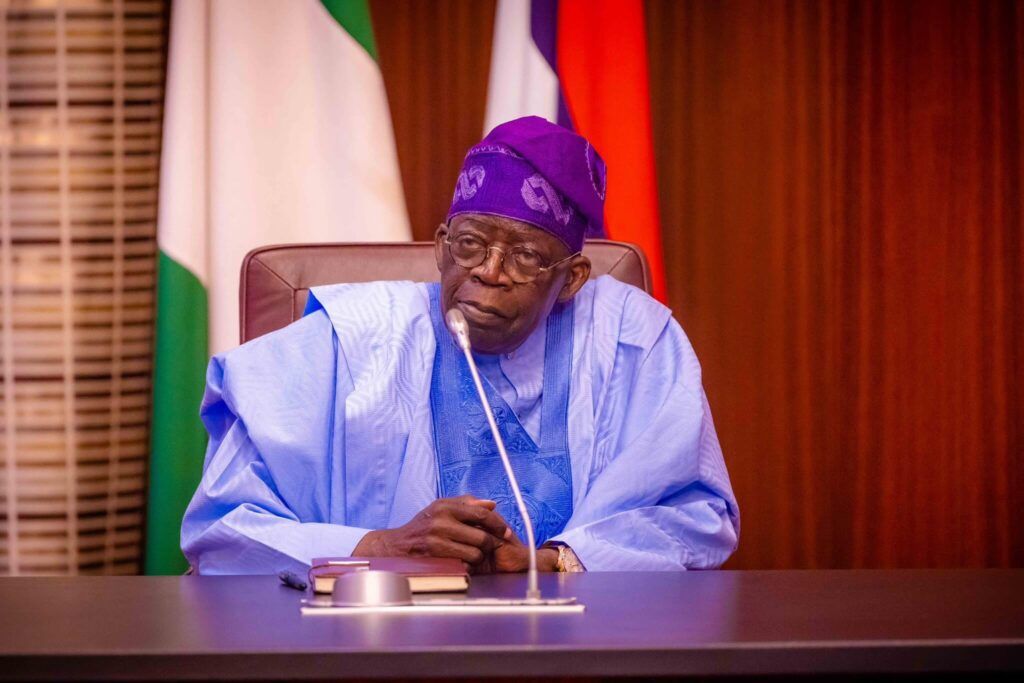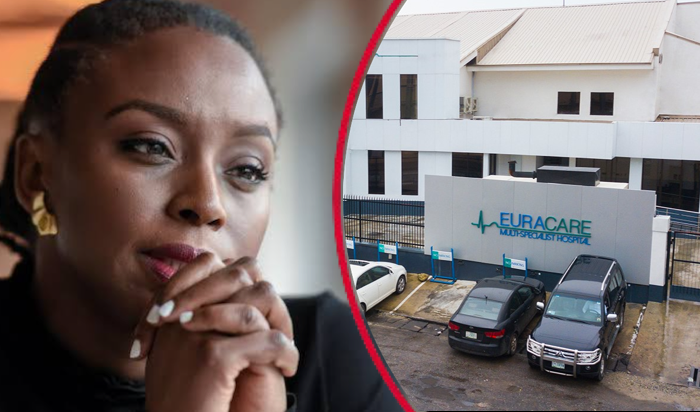
President Bola Ahmed Tinubu has called for the creation of a dedicated endowment fund to ensure the long-term maintenance and sustainability of the newly refurbished National Arts Theatre, now renamed the Wole Soyinka Centre for Culture and Creative Arts.
The President made the call on Thursday in Lagos during the official reopening of the historic venue following its extensive renovation. Addressing guests at the ceremony, Tinubu expressed pride in the restoration of the landmark and stressed the need to preserve it for future generations.
“This place will not go dry again,” Tinubu declared. “Cardoso and others must now work together to establish an endowment fund and I will personally contribute to it.”
Beyond the physical revival of the theatre, the President used the moment to rally Nigerians toward unity, hope, and national pride, urging the public to resist pessimism and embrace a collective vision for the country’s future.
“Stop speaking ill of Nigeria. Let’s lift Nigeria, believe in Nigeria, and put this country first,” Tinubu said, adding, “If you’ve had a bad dream, forget it, this country will succeed.”
He praised the organisers of the event and applauded the symbolic renaming of the iconic space in honour of Nobel Laureate Prof. Wole Soyinka, calling it a fitting tribute to one of Nigeria’s greatest cultural icons.
CBN, Bankers’ Committee Invested N68bn in Restoration
Governor of the Central Bank of Nigeria (CBN), Olayemi Cardoso, revealed that the project was largely funded by the Bankers’ Committee, which committed approximately N68 billion to restore the theatre.
“This goes beyond corporate social responsibility,” Cardoso said. “It is a purposeful investment in our creative and cultural economy. This project proves that when the public and private sectors unite around a shared national vision, there are no limits to what we can achieve.”
He acknowledged the contributions of key partners including the Lagos State Government, the Ministry of Arts, Culture and Creative Economy, and paid tribute to the late Herbert Wigwe, whose passion helped shape the vision of the centre.
Soyinka Reflects on the Theatre’s Origins
In a nostalgic and candid address, Professor Wole Soyinka recalled the early days of the theatre, critiquing its architectural roots and foreign influence.
“When it was first built, we called it the ‘General’s Hat’ a structure copied from Bulgaria. It wasn’t even designed as a theatre but a sports arena,” he recounted. “But I hope with this rebirth, we no longer need to travel to Abu Dhabi to experience African theatre.”
He expressed appreciation for the honour, while reminding guests that the centre now stands as a symbol of collective creative ambition.
Minister of Arts, Culture and Creative Economy, Hannatu Musawa, described the centre’s reopening as a key milestone in Nigeria’s creative renaissance and a strategic tool in economic diversification under President Tinubu’s Renewed Hope Agenda.
“The creative economy is a vital driver of job creation, national pride, and foreign investment. We are building platforms like the Creative Economy Development Fund and the Creative Tourism Infrastructure Corporation to empower Nigerian youth and attract capital,” Musawa said.
She also highlighted the Motherland Initiative, aimed at connecting the Nigerian diaspora with their cultural roots and providing global platforms for collaboration.
“This transformation is the result of powerful collaboration. We thank Mr. President, the CBN Governor, the Lagos State Government, and all stakeholders who brought this vision to life.”
A New Era for Nigeria’s Cultural Flagship
Once a symbol of neglect and underuse, the National Theatre now the Wole Soyinka Centre is being reimagined as the heart of Nigeria’s growing creative and cultural sector. With a blend of visionary leadership, institutional investment, and national pride, the centre is set to become a world-class venue for the arts, attracting local talent and international attention.
Tinubu’s call for an endowment fund, combined with the N68bn already invested, is seen by industry watchers as a significant step toward making the centre self-sustaining, job-creating, and central to Nigeria’s soft power diplomacy.
“We are witnessing the beginning of a creative revolution,” one official said. “This is more than a building, it’s a cultural movement.”



